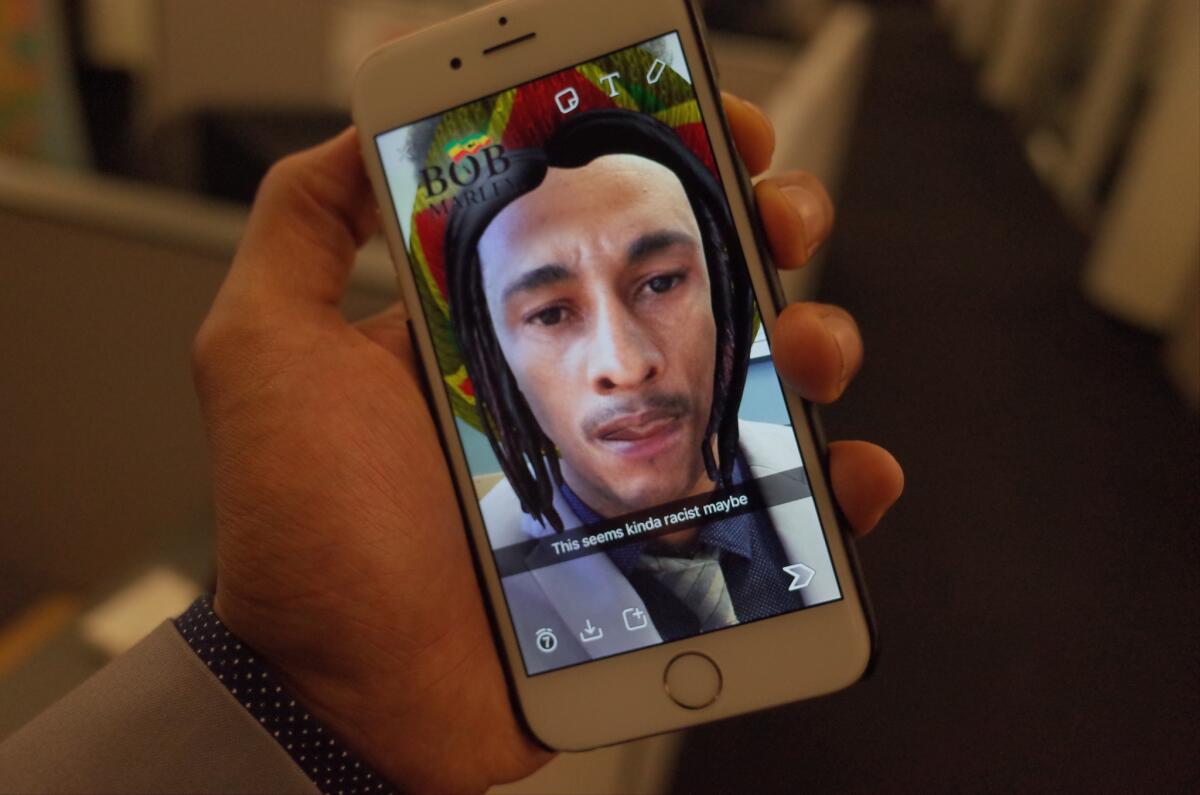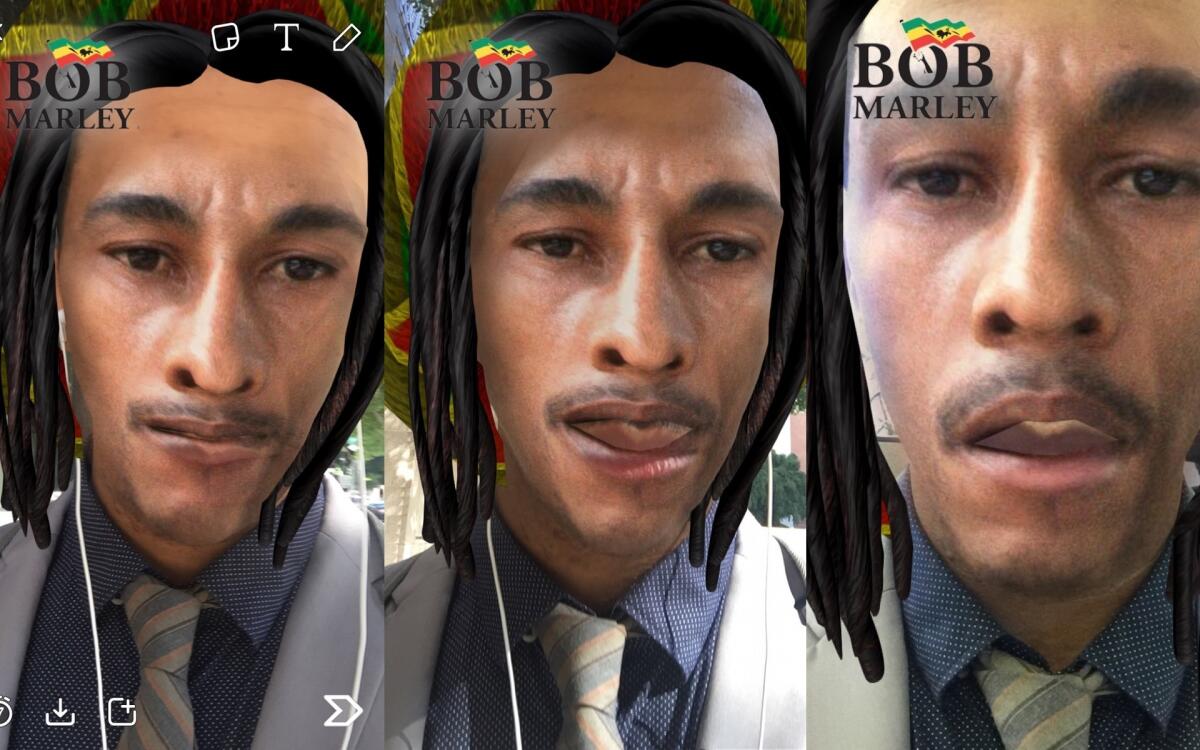In celebration of 4/20, Snapchat brings Bob Marley — and blackface

- Share via
Halloween came early this year.
Around mid-October every year, the Internet lights up with talk of cultural appropriation, leading up to the predictable deluge of racist costumes posted on social media.
But this morning, Snapchat brought us an early taste of Halloween 2016, via a sponsored lens that turns your skin brown and puts dreadlocks on your head – just in time for 4/20. Behold, Kylie Jenner as Bob Marley:
As you might expect, Snapchat is facing criticism for this. It’s hard to call it anything other than blackface, because, well, it turns people into a black face.
(And it barely works on actual black faces. While the app does fine turning non-black people into a caricatured black face, it had a hard time tracking my lips, which are a bit thicker than, say, Snapchat founder Evan Spiegel's.)

Other people of color seem to be having similar trouble. You'd think some effort would have been put in here, given that HP had similar technical difficulties in 2009.
That said, it’s hard to blame the Bob Marley filter entirely on the Venice start-up. According to a statement issued by Snapchat to several media outlets, the lens "was created in partnership with the Bob Marley Estate, and gives people a new way to share their appreciation for Bob Marley and his music. Millions of Snapchatters have enjoyed Bob Marley’s music, and we respect his life and achievements.”
For Snapchat, custom lenses are a big business. Sponsored lenses can cost anywhere from $450,000 to $700,000 per day, according to a Buzzfeed report. The Bob Marley Estate did not respond to an email inquiry.
Blackface aside, releasing the lens on the same day as the nation's unofficial stoner holiday further reduces Marley down to a patron saint of pot.
Marley was a lot of things: a father, a deeply religious man, a pretty good soccer player, and one of the most influential artists of all time. His songs were about the legacy of slavery, about colonization, about oppression and about hope.
And yes, he smoked marijuana. He also sang about it occasionally. But like a lot of black history, Marley’s message and legacy have been stripped down to something that’s much more easily consumed. In this case, a cartoonish caricature of a Jamaican pot-smoker.
It's unfortunate that the people running his estate are contributing to that with this 4/20 lens. Requests for comment sent to the management of the Bob Marley site and to the Rita Marley Foundation were not returned.
But it's Snapchat that's facing most of the backlash.
Until this morning, Snapchat was (mostly) on Jamaica’s good side.
Last September, Snapchat spotlighted Jamaica as a featured location on the app, and a lot of people were excited about the honor. All day, people submitted snaps to be viewed by Snapchat users the world over. Everyone I interviewed about it saw it as an opportunity to show the real Jamaica – beyond the tourist beaches.
But all curation was handled in Los Angeles and New York. Jamaicans weren’t necessarily involved with the project, which might explain how someone was able to troll viewers with a quick snap of themselves talking in a silly, over-the-top twang. It got ridiculed on social media by actual Jamaicans, and the video was quietly removed from the Snapchat story lineup.
That might have been avoided if there were more (or any) Jamaicans involved with the process. The same goes for this Bob Marley lens. Having minorities on staff is never a guarantee that a PR nightmare won't make it out the door. But this does seem to be another strong case for diversity in tech companies. Diversity among the voices in the room can help a company to make products that will inspire, not infuriate, their customers.
This is a lesson that has been learned by a small but growing group of tech companies. Some in the tech world have slowly begun to release their employee demographic information, along with public statements on their commitment to creating a workforce that more closely resembles their userbase.
Snapchat is not one of those companies. It has not yet released any statistics on its demographics, and an email to its communications department requesting this information was not answered.
Given Snapchat's wide adoption by people of color (see super-user DJ Khaled), it's hard to imagine that it will be able to ignore the backlash it's seeing today.
Hopefully, this incident provides some inspiration for Snapchat to turn the lens back on itself.
For more on the intersection of culture and the Internet, follow me @dexdigi
MORE BUSINESS NEWS
Google is rigging the global app market with Android, EU alleges




